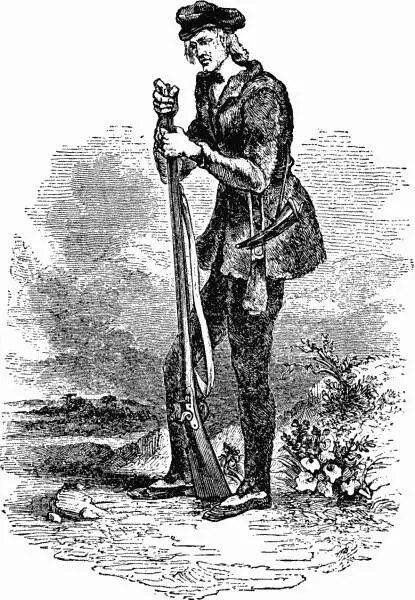Фредерик Марриет - The Settlers in Canada
Здесь есть возможность читать онлайн «Фредерик Марриет - The Settlers in Canada» — ознакомительный отрывок электронной книги совершенно бесплатно, а после прочтения отрывка купить полную версию. В некоторых случаях можно слушать аудио, скачать через торрент в формате fb2 и присутствует краткое содержание. Жанр: foreign_prose, literature_19, foreign_antique, на английском языке. Описание произведения, (предисловие) а так же отзывы посетителей доступны на портале библиотеки ЛибКат.
- Название:The Settlers in Canada
- Автор:
- Жанр:
- Год:неизвестен
- ISBN:нет данных
- Рейтинг книги:4 / 5. Голосов: 1
-
Избранное:Добавить в избранное
- Отзывы:
-
Ваша оценка:
- 80
- 1
- 2
- 3
- 4
- 5
The Settlers in Canada: краткое содержание, описание и аннотация
Предлагаем к чтению аннотацию, описание, краткое содержание или предисловие (зависит от того, что написал сам автор книги «The Settlers in Canada»). Если вы не нашли необходимую информацию о книге — напишите в комментариях, мы постараемся отыскать её.
The Settlers in Canada — читать онлайн ознакомительный отрывок
Ниже представлен текст книги, разбитый по страницам. Система сохранения места последней прочитанной страницы, позволяет с удобством читать онлайн бесплатно книгу «The Settlers in Canada», без необходимости каждый раз заново искать на чём Вы остановились. Поставьте закладку, и сможете в любой момент перейти на страницу, на которой закончили чтение.
Интервал:
Закладка:
The commandant's boat had pulled much faster, and was a long way ahead of the bateaux . In a few minutes afterward they had all disembarked and were standing on the knoll, surveying their new property. A portion of about thirty acres, running along the shore of the lake, was what is termed natural prairie, or meadow of short fine grass; the land immediately behind the meadow was covered with brushwood for about three hundred yards, and then rose a dark and impervious front of high timber which completely confined the landscape. The allotment belonging to the old hunter, on the opposite side of the brook, contained about the same portion of natural meadow, and was in other respects but a continuation of the portion belonging to Mr. Campbell.
"Well," said Martin Super, as soon as he had come up to the party on the knoll, for the bateaux had now arrived, "I reckon, Mr. Campbell, that you are in luck to have this piece of grass. It would have taken no few blows of the ax to have cleared it away out of such a wood as that behind us. Why, it is as good as a fortune to a new settler."
"I think it is, Martin," said Mr. Campbell.
"Well, sir, now to work as soon as you please, for a day is a day, and must not be lost. I'll go to the wood with five or six of the men who can handle an ax, and begin to cut down, leaving you and the captain there to decide where the house is to be; the other soldiers will be putting up the tents all ready for to-night, for you must not expect a house over your heads till next full moon."
In a quarter of an hour all were in motion. Henry and Alfred took their axes, and followed Martin Super and half of the soldiers, the others were busy landing the stores and pitching the tents, while Captain Sinclair and Mr. Campbell were surveying the ground, that they might choose a spot for the erection of the house. Mrs. Campbell remained sitting on the knoll, watching the debarkation of the packages; and Percival, by her directions, brought her those articles which were for immediate use. Mary and Emma Percival, accompanied by John, as they had no task allotted to them, walked up the side of the stream toward the wood.
"I wish I had my box," said John, who had been watching the running water.
"Why do you want your box, John?" said Mary.
"For my hooks in my box," replied John.
"Why, do you see any fish in this small stream?" said Emma.
"Yes," replied John, walking on before them.
Mary and Emma followed him, now and then stopping to pick a flower unknown to them: when they overtook John, he was standing immovable, pointing to a figure on the other side of the stream, as fixed and motionless as himself.
The girls started back as they beheld a tall, gaunt man, dressed in deer hides, who stood leaning upon a long gun with his eyes fixed upon them. His face was browned and weather-beaten—indeed so dark that it was difficult to say if he were of the Indian race or not.
"It must be a hunter, Emma," said Mary Percival; "he is not dressed like the Indians we saw at Quebec."
"It must be," replied Emma; "won't he speak?"
"We will wait and see," replied Mary. They did wait for a minute or more, but the man neither spoke nor shifted his position.
"I will speak to him, Mary," said Emma at last. "My good man, you are Malachi Bone, are you not?"
"That's my name," replied the hunter in a deep voice; "and who on earth are you, and what are you doing here? Is it a frolic from the fort, or what is it, that causes all this disturbance?"
"Disturbance!—why we don't make a great deal of noise; no, it's no frolic; we are come to settle here, and shall be your neighbors."

MALACHI. P. 88.
"To settle here!—why, what on earth do you mean, young woman? Settle here!—not you, surely."
"Yes, indeed, we are. Don't you know Martin Super, the trapper? He is with us, and now at work in the woods getting ready for raising the house, as you call it.—Do you know, Mary," said Emma in a low tone to her sister, "I'm almost afraid of that man, although I do speak so boldly."
"Martin Super—yes, I know him," replied the hunter, who without any more ceremony threw his gun into the hollow of his arm, turned round, and walked away in the direction of his own hut.
"Well, Mary," observed Emma, after a pause of a few seconds, during which they watched the receding form of the hunter, "the old gentleman is not over-polite. Suppose we go back and narrate our first adventure?"
"Let us walk up to where Alfred and Martin Super are at work, and tell them," replied Mary.
They soon gained the spot where the men were felling the trees, and made known to Alfred and Martin what had taken place.
"He is angered, miss," observed Martin; "I guessed as much; well, if he don't like it he must squat elsewhere."
"How do you mean squat elsewhere?"
"I mean, miss, that if he don't like company so near him he must shift and build his wigwam further off."
"But, why should he not like company? I should have imagined that it would be agreeable rather than otherwise," replied Mary Percival.
"You may think so, miss; but Malachi Bone thinks otherwise; and it's natural; a man who has lived all his life in the woods, all alone, his eye never resting, his ear ever watching; catching at every sound, even to the breaking of a twig or the falling of a leaf; sleeping with his finger on his trigger and one eye half open, gets used to no company but his own, and can't abide it. I recollect the time that I could not. Why, miss, when a man hasn't spoken a word perhaps for months, talking is a fatigue, and, when he hasn't heard a word spoken for months, listening is as bad. It's all custom, miss, and Malachi, as I guessed, don't like it, and so he's rily and angered. I will go see him after the work is over."
"But he has a wife, Martin, has he not?"
"Yes; but she's an Indian wife, Master Alfred, and Indian wives don't speak unless they're spoken to."
"What a recommendation," said Alfred, laughing; "I really think I shall look after an Indian wife, Emma."
"I think you had better," replied Emma. "You'd be certain of a quiet house,—when you were out of it,—and when at home, you would have all the talk to yourself, which is just what you like. Come, Mary, let us leave him to dream of his squaw."
The men selected by the commandant of the fort were well used to handle the ax; before dusk, many trees had been felled, and were ready for sawing into lengths. The tents had all been pitched: those for the Campbells on the knoll we have spoken of; Captain Sinclair's and that for the soldiers about a hundred yards distant; the fires were lighted, and as the dinner had been cold, a hot supper was prepared by Martin and Mrs. Campbell, assisted by the girls and the younger boys. After supper they all retired to an early bed; Captain Sinclair having put a man as sentry, and the dogs having been tied at different places, that they might give the alarm if there was any danger; which, however, was not anticipated, as the Indians had for some time been very quiet in the neighborhood of Fort Frontignac.
CHAPTER X
The next morning, when they assembled at breakfast, after Mr. Campbell had read the prayers, Mary Percival said, "Did you hear that strange and loud noise last night? I was very much startled with it; but, as nobody said a word, I held my tongue."
"Nobody said a word, because every body was fast asleep, I presume," said Alfred; "I heard nothing."
"It was like the sound of cart-wheels at a distance, with whistling and hissing," continued Mary.
"I think I can explain it to you, as I was up during the night, Miss Percival," said Captain Sinclair. "It is a noise you must expect every night during the summer season; but one to which you will soon be accustomed."
Читать дальшеИнтервал:
Закладка:
Похожие книги на «The Settlers in Canada»
Представляем Вашему вниманию похожие книги на «The Settlers in Canada» списком для выбора. Мы отобрали схожую по названию и смыслу литературу в надежде предоставить читателям больше вариантов отыскать новые, интересные, ещё непрочитанные произведения.
Обсуждение, отзывы о книге «The Settlers in Canada» и просто собственные мнения читателей. Оставьте ваши комментарии, напишите, что Вы думаете о произведении, его смысле или главных героях. Укажите что конкретно понравилось, а что нет, и почему Вы так считаете.












